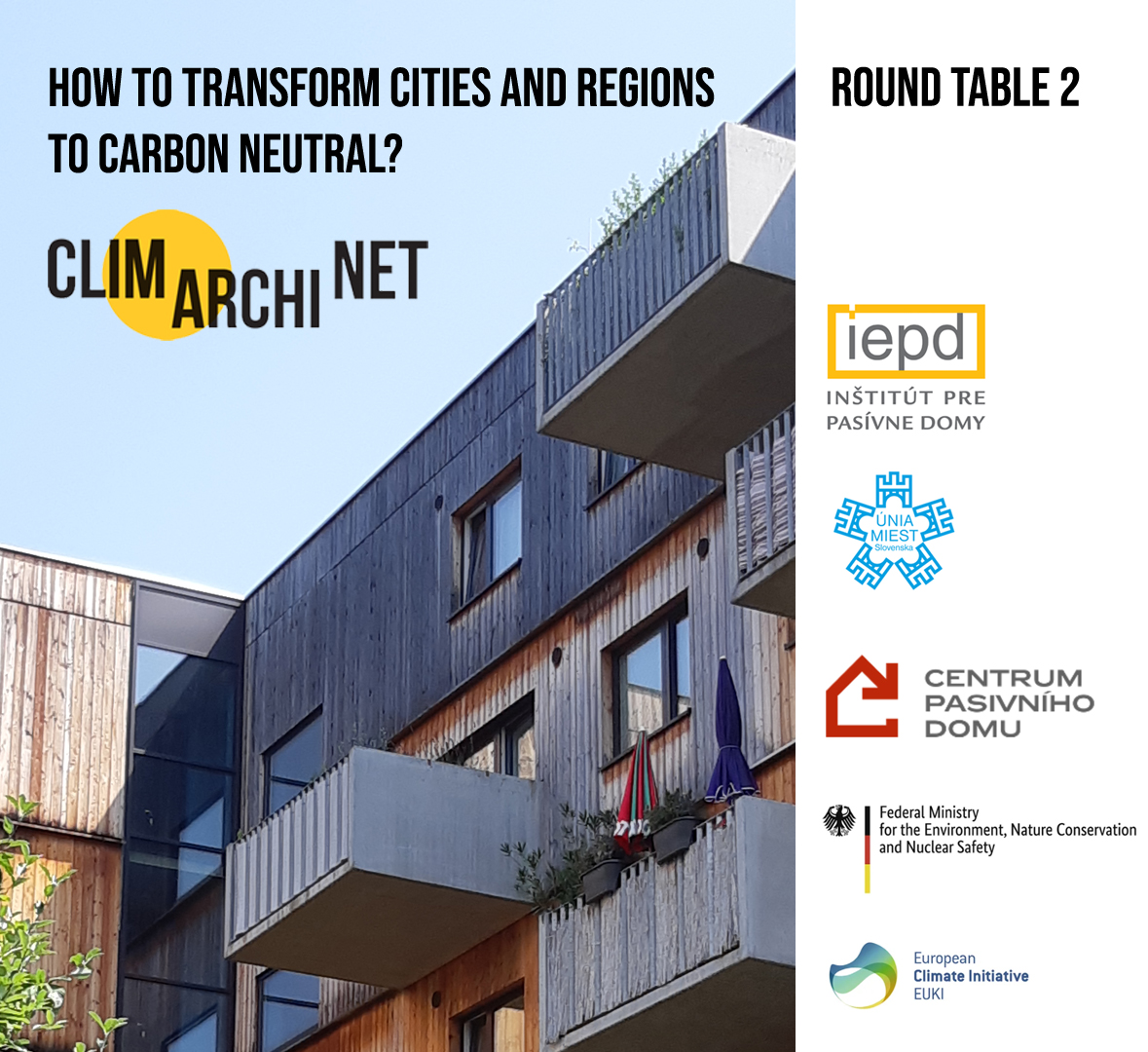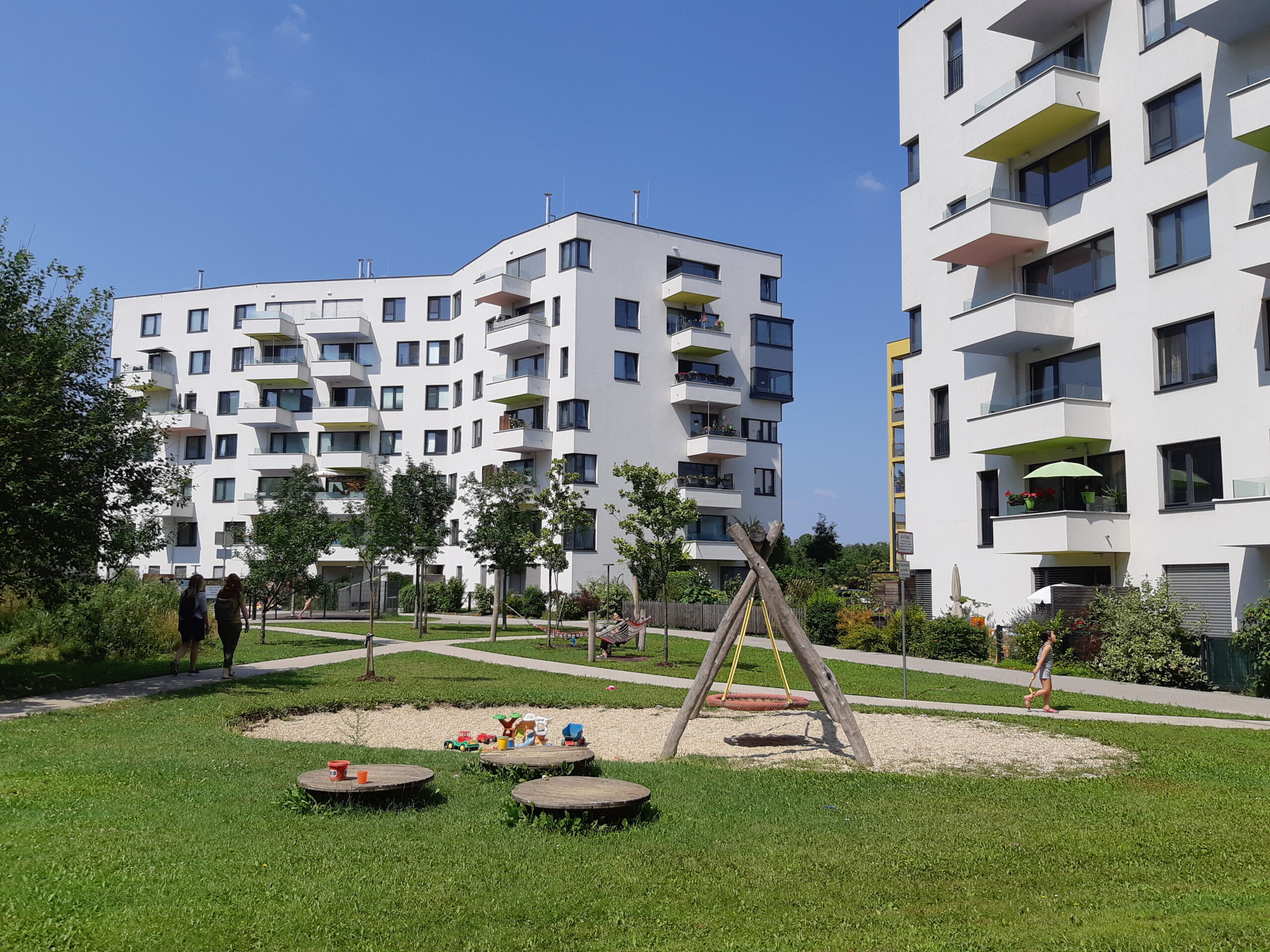ClimArchiNet: How to transform cities and regions towards carbon neutrality?
On Tuesday 22nd of March, ClimArchiNet Round Table No. 2 with local governments was organized by the Institute for Passive House in cooperation with the Union of Slovak Cities within the project Climarchinet, supported by the European Climate Initiative EUKI. Urban areas account for 60-80% of global energy consumption and CO 2 emissions. Despite their current negative impact on climate change, cities are also becoming a promising tool for effectively achieving climate goals.

The chairwoman of the Passive House Institute, Ľubica Šimkovicová, welcomed the participants. Daniela Piršelová, spokeswoman and adviser for the climate crisis of the Union of Slovak Cities, thanked the organizers and experts who took part in the round table and, despite the currently difficult situation, are willing to share their knowledge with the participants. She said that despite the fact that cities are at the forefront of the next crisis, the climate crisis has not ceased to exist and we must not postpone its solutions:
Further Informations
“Let’s not underestimate the preparation. We want to motivate cities that time, personnel and financial investment in solving the climate crisis is a benefit. We also see this in practical cases, professional, sensible and sensitive solutions help cities to ensure a better life for people in cities. The state should play a big role, but it is the cities that know the reality directly in the territory, and they should use all the possibilities of the tool to build their own capacities and implement changes for the better.”
Experts focused on the municipality agenda
Andrea Borská (iEPD) presented the implementation of the carbon-neutral district Seestadt Aspern in Vienna. Energy efficient buildings, renewables and community housing give us an excellent example of how to create a sustainable urban environment. In his presentation, Vladimír Šimkovic, iEPD, described the experience from the Deliver project in Karlova ves, within which a model project for the renovation of prefabricated apartment buildings to a passive standard is being developed. Nora Vranová (Slovak Chamber of Architects) presented various advantages and forms of design competitions, which can fundamentally help clients obtain a quality and sustainable design and save construction costs. Juraj Zamkovský (Friends of the Earth CEPA) spoke about capacity building, which is a condition for the decarbonisation of energy in the regions. Tomáš Vanický (CPD) summarized the creation of a methodology for public contracting authorities in the Czech Republic.
This was followed by a discussion with experts and participants in the round table, which also discussed the need to eliminate our dependence on fossil fuels from Russia, the motivation and awareness of the population and the fact that the renovation of buildings has great potential for energy savings. Landscape planning expert Zuzana Hudeková said in the discussion that she also expects more support from the national level in order to achieve carbon neutrality. She gave examples from France, where cities have state support and methodology.
You can watch the recording of the event HERE

